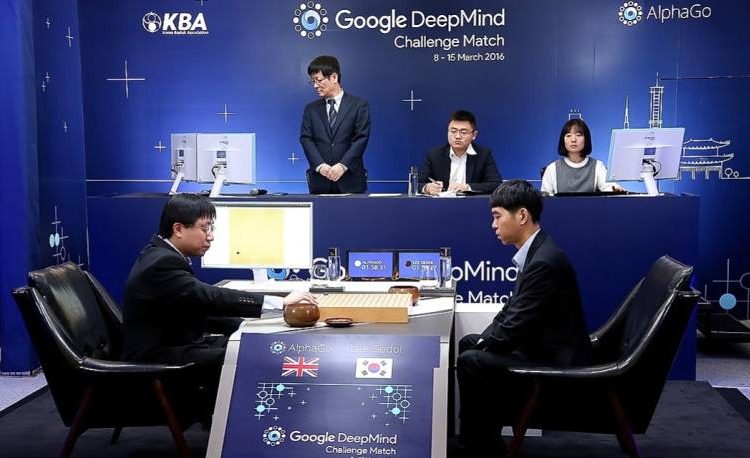Wealth managers, like much of the business world, have been focusing on LLMs, but the real innovation in managing assets may come from another breed of AI operators
South Korean professional Go player Lee Se-Dol (R) waits after putting the first stone against Google’s artificial intelligence program, AlphaGo, during the Google DeepMind Challenge Match on March 9, 2016 in Seoul, South Korea © Getty Images
The rise of large language models (LLMs) like ChatGPT has made artificial intelligence a boardroom staple. Their linguistic fluency dazzles, generating reports, emails and even investment narratives. But beneath the surface, these tools are statistical improvisers — powerful, yes, but ultimately reactive. For those managing wealth, where foresight, causality and long-term performance matter most, it is another AI milestone that deserves closer attention: AlphaGo.
When AlphaGo defeated world Go champion Lee Sedol in 2016, it wasn’t just a victory for machine learning — it was a paradigm shift. Unlike ChatGPT, which learns by absorbing and replicating language patterns, AlphaGo learned through interaction. It began with human data but quickly moved beyond it, evolving its gameplay via reinforcement learning and strategic self-play. It discovered new tactics — unpredictable yet effective — that even experts hadn’t considered. This was not mimicry. It was innovation driven by experience.
This experience-based architecture went on to inspire AlphaFold, DeepMind’s breakthrough system that solved the complex puzzle of protein folding. That achievement earned co-developer John Jumper a Nobel Prize in Chemistry in 2024. At the 2025 Lindau Nobel Laureate Meeting, Mr Jumper made a striking observation: while language models impress with output, it is learning-centric agents like AlphaFold — descendants of AlphaGo — that drive real discovery. They don’t just summarise the past; they shape the future.
What this means for wealth management
In wealth management, this distinction is becoming increasingly relevant. The industry stands at the intersection of complexity, uncertainty and data overload. LLMs may assist with communication and analysis, but they are not equipped to drive investment decisions. They cannot interact with real markets, adapt to volatility, or develop new strategies based on evolving conditions.
By contrast, new generations of investment systems are emerging, built on reinforcement learning, simulation and agent-based architectures that echo AlphaGo’s strategic intelligence. These models learn through interaction: not from historical backtests alone, but from ongoing exposure to dynamic market conditions. They don’t replicate old trading strategies — they evolve their own.
Such systems are already in production. We expect that a small group of asset managers and quant pioneers are now running multi-agent platforms where hundreds of autonomous models operate in parallel — testing, adjusting and executing trades in real time. These systems are not perfect predictors; no model is. But their accuracy in anticipating market movements — in our case above 60 per cent — can be enough to generate strong risk-adjusted returns over time. Their strength lies not in certainty, but in adaptive reasoning, diversity of signals and scalability of strategy.
Importantly, this is not a replacement for human judgment. Just as AlphaFold accelerates scientific discovery without replacing laboratories, the new systems enhance portfolio performance without removing governance. Humans remain responsible for platform design, data integrity and model consistency. But the agents themselves operate independently: testing, trading and evolving continuously.
The future will not be defined by dashboards powered by ChatGPT. It will be shaped by intelligent systems that interact with real-world complexity, adjust in real time, and pursue performance based on learned experience
This evolution reflects a broader shift in wealth management. The future will not be defined by dashboards powered by ChatGPT. It will be shaped by intelligent systems that interact with real-world complexity, adjust in real time, and pursue performance based on learned experience.
Profound implications
For family offices, institutional investors and asset managers seeking long-term alpha, the implications are profound. Instead of relying solely on discretionary strategies or traditional quant models, firms can now deploy autonomous agents that evolve over time or invest in these kinds of strategies. These systems are not cost-saving tools. They are strategic assets capable of uncovering new sources of return, ideally uncorrelated to equity markets and others.
That’s why we believe the next breakthroughs in wealth management won’t come from models that generate the best narrative, but from those that learn the deepest lessons from the data. Predictive language models will continue to play a support role. But when it comes to making investment decisions in a volatile, fast-moving world, we need agents that can reason, adapt and improve on their own.
AlphaGo offered the first glimpse of this kind of intelligence. In the years since, its architectural legacy has reshaped biology, chemistry and now, capital allocation. It taught us that machines can go beyond our intuition, provided they are given the right environment to learn.
As wealth managers and family offices prepare for the next generation of intelligent investing, the key question is not how fluent an AI sounds, but how effectively it has learned to navigate real markets. Rather than building their own systems, most will rely on proven strategies from specialised managers with years of experience deploying autonomous AI agents. The opportunity lies in identifying those pioneers who have already mastered this new investment frontier.

Pawel Skrzypek, co-founder of Omphalos Fund

